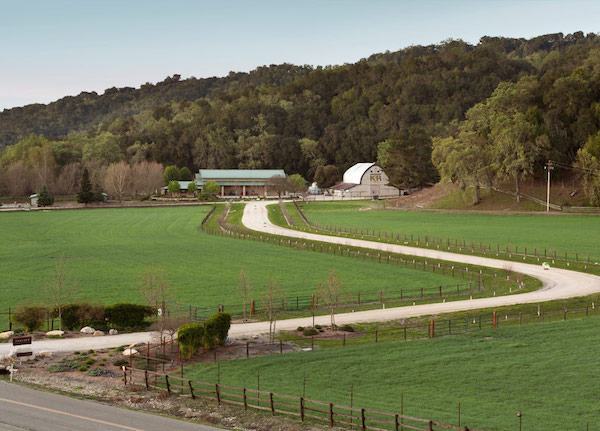
While Thacher Winery continues to work with traditional grapes, such as syrah and cabernet sauvignon, over the last several years it has gained praise and new fans for its “off-the-radar” grapes.
–Giornata Wines and Thacher Winery and Vineyard were recently praised by Wine Spectator magazine for their vision and their commitment to crafting wines from lesser-known grape varietals using minimalist methods.
The two family-owned wineries were featured as must-tries in an article called “11 Exciting Off-the-Radar California Reds,” written by wine critic, MaryAnn Worobiec.
“This list highlights several of these alternative varieties,” Worobiec writes. “Many [are] grown in the Golden State’s lesser-known corners with low-intervention methods to highlight their unique characters and terroirs.”
Worobiec highlighted Giornata’s 2018 Montepulciano, and Thacher’s 2018 Shell Creek Vineyard Valdiguié, both made with Paso Robles-grown grapes.
While Thacher continues to work with traditional grapes, such as syrah and cabernet sauvignon, over the last several years it has gained praise and new fans for its “off-the-radar” grapes, including cinsault, chenin blanc, valdiguié, and most recently, négrette.
Giornata – one of the first wineries to set up shop in Paso Robles’ Tin City, and the first local winery to use clay amphora for fermenting – has always focused solely on Italian grapes such as nebbiolo, barbera, fiano, falanghina, sangiovese, montepulciano and aglianico.
Both wineries are also active in the annual 7 Percent Solution Festival, which highlights and promotes grape diversity.
“We never had the goal to start a new movement in Paso, we just really wanted to make wines we personally love to drink – and we love the challenge of working with new grapes,” says Sherman Thacher, founder and winemaker at Thacher. “Still, it’s really nice to be recognized in the mainstream wine world for our hard work.”
Brian Terrizzi, Giornata’s co-founder and winemaker, agrees. “Sherman and I have both shared the same ethos, that less is more when it comes to winemaking – like only using naturally occurring native yeasts,” Terrizzi says. “And while the wines we make aren’t so called traditional Paso wines, I think our pioneering spirit is very Paso.”











